
Considering IVF? Here’s all you need to know about in vitro fertilisation (IVF) in Singapore from what it is, to how it works, IVF success rates, and where to go for treatment.
Getting pregnant does not come easily for everyone but thanks to medical advancement, IVF (in vitro fertilisation) provides an option for those who have not been able to conceive naturally. Any medical procedure can be overwhelming, especially one that you hope will help you have children. To give you an overview of what to expect on your IVF journey, we cover all you need to know about IVF in Singapore. From understanding the IVF procedure and IVF success rate to where to go for your first consultation, here is your guide to IVF in Singapore.
Read More: That Mama: Charlotte Goh on IVF & Having Tourette Syndrome
What is IVF?
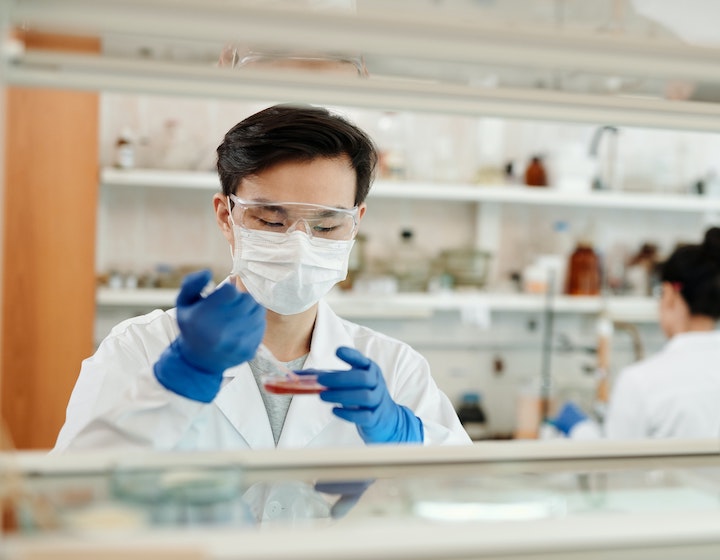
In vitro fertilisation is more commonly known as IVF. This is a type of assisted reproductive technology for those who are not able to conceive naturally. While women – regardless of their marital status – can freeze their eggs, only legally married couples are allowed to use their frozen eggs for IVF. From 1 July 2023, women can opt for elective egg freezing until the age of 37. By using medicine and surgical procedures, the sperm and egg are extracted and fertilised in a lab. When the fertilised egg becomes an embryo, the doctor will insert the embryo into your uterus. If the embryo attaches to the lining of your uterus, then congratulations, you’re pregnant!
Read More: ‘I Spent 10 Years Doing IVF. If I Had the Option to Freeze My Eggs When I Was Younger, Would I Have?’
What does the IVF procedure look like?
One IVF cycle can last between four to six weeks, including the period before egg retrieval until you are tested for pregnancy. There are seven main steps in the entire IVF process, so here is the gist of it to give you an idea of what to expect.
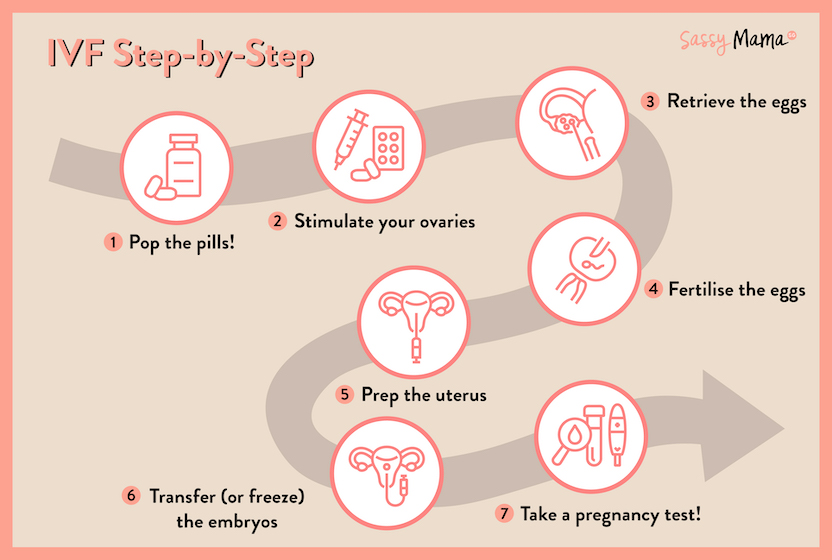
Step 1: Pop the Pills
Any medical procedure begins with a consultation with a doctor. If you are fit to proceed with the IVF treatment, you begin by taking fertility medications like birth control pills or estrogen. This will stop the development of ovarian cysts, control the timing of your menstrual cycle and help your ovaries produce mature eggs for fertilisation.
Step 2: Stimulate your Ovaries
To maximise the number of mature eggs produced, you will take injectable hormone medications. The doctor will monitor your body’s response to the hormones by ultrasounds and blood tests to assess your egg production. Stimulations can last between 8 to 14 days. When your eggs are ready for final maturation, the doctor will instruct you to administer the “trigger shot” exactly 36 hours before your scheduled egg retrieval time.
Step 3: Retrieve the Eggs
When your ovaries have produced enough mature eggs, the doctor will remove the eggs from your body with a minor surgery. This may sound scary, but don’t worry, you will get medicine to relax so you can stay comfortable throughout the procedure. Once you’re comfortable, the doctor will use an ultrasound to visualise your uterus and insert a thin, hollow tube through your vagina to retrieve the mature eggs from the follicles in your ovary. This thin tube is connected to a suction device that will gently extract the egg from each follicle.
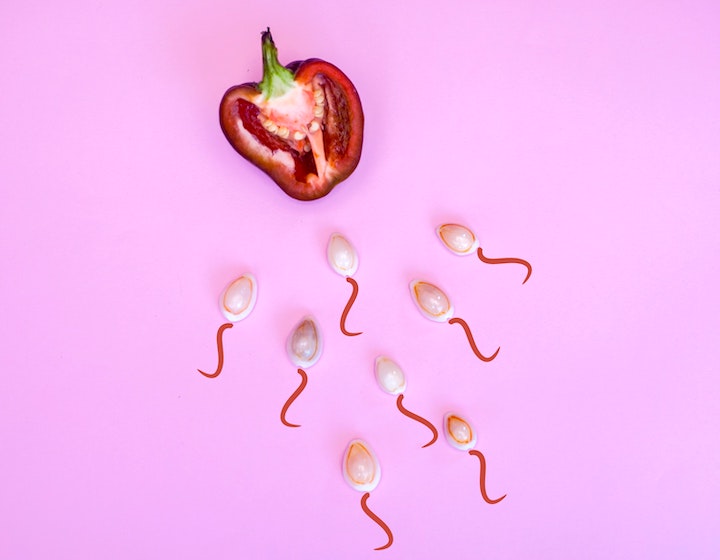
Step 4: Fertilise the Eggs
Your doctor will then take your mature egg to the lab and mix it with your partner or donor’s sperm cells. People in the laboratory will monitor the progress to assess if the fertilised eggs divide to become embryos. On average, 50% of fertilised embryos will develop enough for the next stage.
Step 5: Prep the Uterus
To prepare your uterus for the embryo, you will take oral, injectable, vaginal or transdermal hormones. This is usually 14 to 21 days of oral medication followed by six days of injections.
Step 6: Transfer (or freeze) the Embryos
After five to six days, all suitable embryos will either be frozen for future use or transferred. A fresh embryo transfer usually happens 3 to 7 days after the egg retrieval. When your uterus is ready, you will get an appointment for the embryo transfer. The doctor will use a thin tube to insert one or two embryos into your uterus. Rest assured, this procedure is usually not painful. Some say it feels like a Pap smear.
Step 7: Take a Pregnancy Test!
About two weeks after your embryo transfer, you will have a blood test to measure the levels of the hormone hCG. If an embryo attaches to the lining of your uterus, you’ll have hCG in your blood. If it’s positive, congrats, you’re pregnant! Be sure to join our Pregnancy Due Date Clubs and find out how much it costs to give birth in Singapore. For more helpful info for mamas-to-be, click here!
What happens after the IVF procedure?
Your doctor will likely ask you to rest the day after the embryo transfer. After which, you can resume your normal daily activities. You may also have to take pills or get daily injections of progesterone for the first 8 to 10 weeks after the embryo transfer. This hormone will help the embryo survive in your uterus so you can get through the first trimester safely.
IVF vs. IUI
To clarify the difference, the IVF procedure fertilises the egg outside of the woman’s body, while the sperm is inserted into the woman’s uterus for an IUI (intra-uterine insemination). This is another artificial fertility treatment that may be a viable option for some.
What is the success rate of IVF in Singapore?
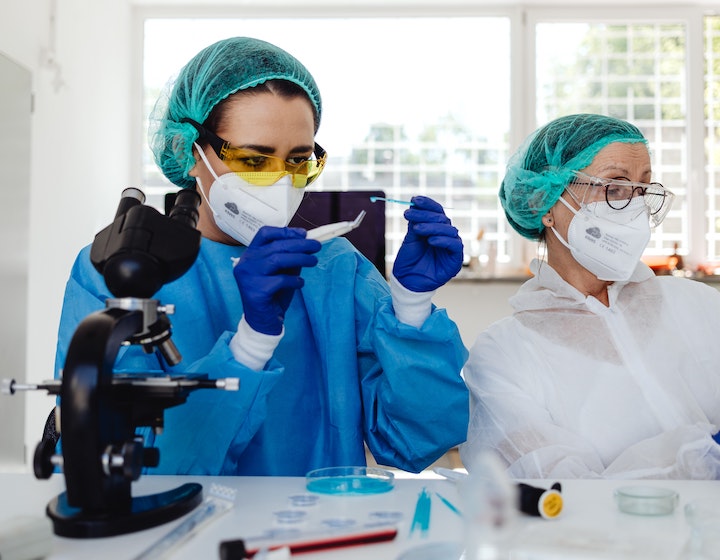
Age is one of the biggest factors that affect the success rate of IVF. For women under 35 years old, the average success rate of IVF is about 50% and decreases significantly with age. Though the success rate of IVF is significantly lower for those above 40, there are still some successful cases.
How much does IVF cost in Singapore?
How much you spend on IVF in Singapore depends on whether you choose to go to a public or private hospital. IVF treatment at a public hospital costs between $10,000 to $15,000 per IVF cycle, while IVF at private centres may charge anywhere from $13,000 to $22,000 per IVF cycle.
Most packages include ultrasound, egg collection, egg transfer, lab charges, nursing fees, use of the operating theatre and recovery room, but it may not cover the doctor’s consultation. Be sure to clarify the breakdown of the package and cost with your chosen medical centre.
Are there any subsidies for IVF in Singapore?
Thankfully, there are subsidies available for Singaporeans and PRs. Here is a breakdown of the maximum subsidies available.
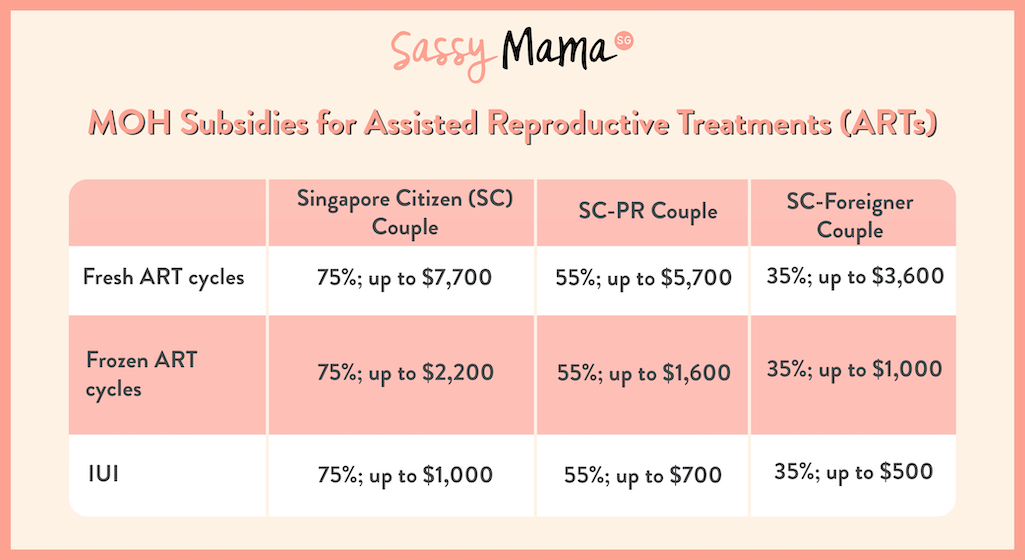
In addition to these subsidies for IVF in Singapore, you can also use up to $15,000 per patient in a lifetime from your Medisave account to help cover the cost of the IVF treatment.
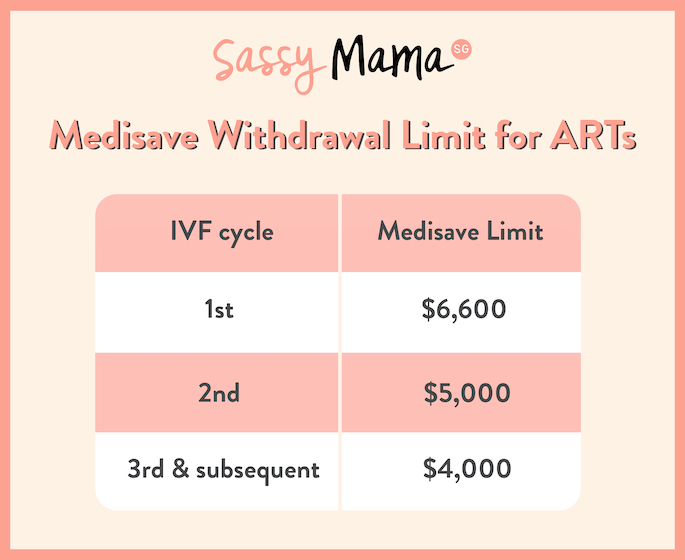
Where can I go for IVF in Singapore?
You can choose to go to a public or private hospital for IVF treatment. If you have a preferred gynae in Singapore you may want to first check if they offer IVF.
Public Hospitals offering IVF Treatment in Singapore
KK Women’s and Children’s Hospital (KKH)
KK Hospital is the largest public hospital that specialises in healthcare for women and children. Obstetrics and gynaecology specialists can help with common gynaecological problems, management of menopause, contraceptive services and more.
![]()
KK Women’s and Children’s Hospital (KKH), 100 Bukit Timah Road, Singapore 229899, Tel: (+65) 6225 5554, www.kkh.com.sg
National University Hospital (NUH)
NUH is the first university hospital in Singapore and a major referral institution. Their team of experts offers a comprehensive suite of specialist care for adults, women and children. They provide a range of women health services including IVF treatment.
![]() National University Hospital (NUH), 5 Lower Kent Ridge Road, Singapore 119074, Tel: (+65) 6908 2222, www.nuh.com.sg
National University Hospital (NUH), 5 Lower Kent Ridge Road, Singapore 119074, Tel: (+65) 6908 2222, www.nuh.com.sg
Singapore General Hospital (SGH)
SGH is one of the top referral hospitals in Singapore that offers a comprehensive range of medical specialties and services including IVF treatment through their Obstetrics and Gynaecology department.
![]()
Singapore General Hospital (SGH), 31 Third Hospital Avenue, Singapore 168753, Tel: (+65) 6222 3322, www.sgh.com.sg
Private Hospitals offering IVF Treatment in Singapore
Raffles Medical Group
Raffles Medical Group is the largest private healthcare provider in Singapore and offers a wide range of services including fertility assessment, IVF treatment and more.
![]() Raffles Fertility Centre – Raffles Hospital, Level 12, 525 North Bridge Road, Singapore 188770, Tel: (+65) 6311 1250, www.rafflesmedicalgroup.com
Raffles Fertility Centre – Raffles Hospital, Level 12, 525 North Bridge Road, Singapore 188770, Tel: (+65) 6311 1250, www.rafflesmedicalgroup.com
Farrer Park Hospital
Farrer Park Hospital provides a host of services and treatments that are integrated with medical technology. Their small but experienced team of four doctors specialising in women’s health can provide consultation services for infertility, IVF treatment and more.
![]() Farrer Park Hospital, 1 Farrer Park Station Road, Connexion, Singapore 217562, Tel: (+65) 6363 1818, www.farrerpark.com
Farrer Park Hospital, 1 Farrer Park Station Road, Connexion, Singapore 217562, Tel: (+65) 6363 1818, www.farrerpark.com
Mount Alvernia Hospital
Mount Alvernia Hospital is a general acute care and multi-disciplinary hospital including women’s health. The obstetrics and gynaecology experts can provide consultation about fertility and IVF treatments.
![]() Mount Alvernia Hospital, 820 Thomson Road, Singapore 574623, Tel: (+65) 6347 6688, mtalvernia.sg
Mount Alvernia Hospital, 820 Thomson Road, Singapore 574623, Tel: (+65) 6347 6688, mtalvernia.sg
Dr Roland Chieng at Virtus Fertility Centre
Dr Roland Chieng is a popular fertility specialist known for his IVF success rates. He is highly regarded as an IVF specialist who achieves desired results and cares for his patients. Dr. Chieng specialises in male infertility, reproductive microsurgery and fertility preservation.
![]() Virtus Fertility Centre, 9 Scotts Road, #09-01, Singapore, 228210, Tel: (+65) 6460 4555, www.virtusfertilitycentre.com.sg
Virtus Fertility Centre, 9 Scotts Road, #09-01, Singapore, 228210, Tel: (+65) 6460 4555, www.virtusfertilitycentre.com.sg
Here’s wishing you all the best on your IVF journey!
Read more:Everything You Need to Know About Giving Birth in Singapore






 View All
View All




 View All
View All










 View All
View All



![[𝗡𝗘𝗪] 𝗣𝗮𝘀𝗶𝗿 𝗥𝗶𝘀’ 𝗕𝗿𝗼𝗻𝘁𝗼𝘀𝗮𝘂𝗿 𝗣𝗮𝗿𝗸 𝗶𝘀 𝗕𝗔𝗖𝗞. 𝗦𝗮𝗳𝗲𝗿 & 𝗙𝗨𝗟𝗟 𝗼𝗳 𝗗𝗶𝗻𝗼-𝗦𝗶𝘇𝗲𝗱 𝗙𝘂𝗻! 🦕🦖
A dinosaur you can climb into, a tail slide you can zoom down, and plenty of spots for kids to swing, bounce, and explore? Yeap, it’s a full-on dino adventure. After being closed for a major revamp, Brontosaur Park is now officially open (and safe!) for little adventurers to run wild.
Comment “DINO” or hit the link in bio for more epic outdoor playgrounds in Singapore!
𝗪𝗵𝗮𝘁 𝘄𝗲 𝗹𝗼𝘃𝗲:
- A Brontosaurus structure kids can explore from the legs to the belly
- A roller slide that goes right down the dino’s tail
- Rope bridges, climbing nets & hammocks between stego spikes = plenty of ways to burn off energy
- Toddler-friendly mini dino zone for the little ones
- Spot dino sculptures painted by residents (hidden all around the park)
𝗧𝗶𝗽𝘀 𝗳𝗼𝗿 𝗺𝗮𝘅 𝗳𝘂𝗻:
- Wear grippy shoes. Lots of climbing involved
- Pack snacks and water (There are minimarts nearby)
𝗪𝗵𝗲𝗿𝗲? The playground is located between Blk 777 & 778, along Pasir Ris St 71
𝗖𝗼𝘀𝘁? FREE!
.
.
.
.
.
#DinoPlaygroundSG #PasirRisPlayground #SgPlaygrounds #OutdoorFunSG #FreePlaygroundsSG #BrontosaurPark #SgFamilyAdventures #ThingsToDoWithKidsSG #SingaporeWithKids #PlaygroundGoalsSG #ToddlerPlaySG](https://www.sassymamasg.com/wp-content/plugins/instagram-feed/img/placeholder.png)
